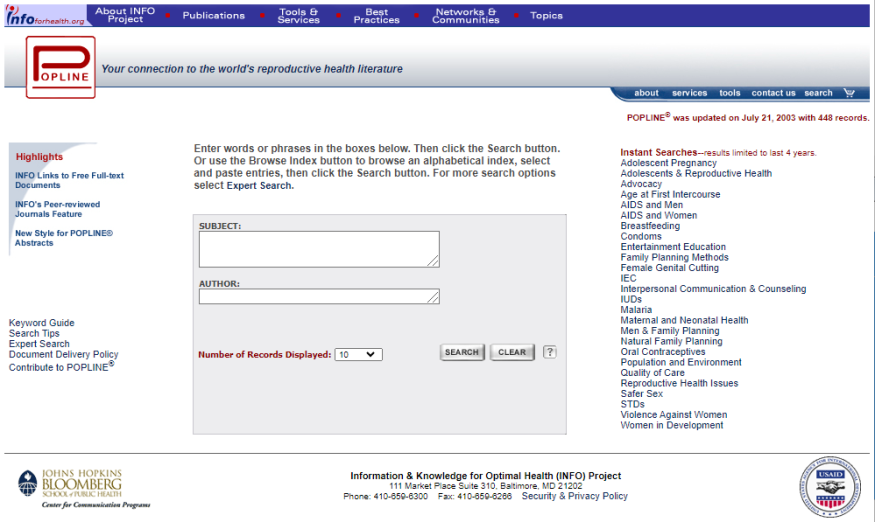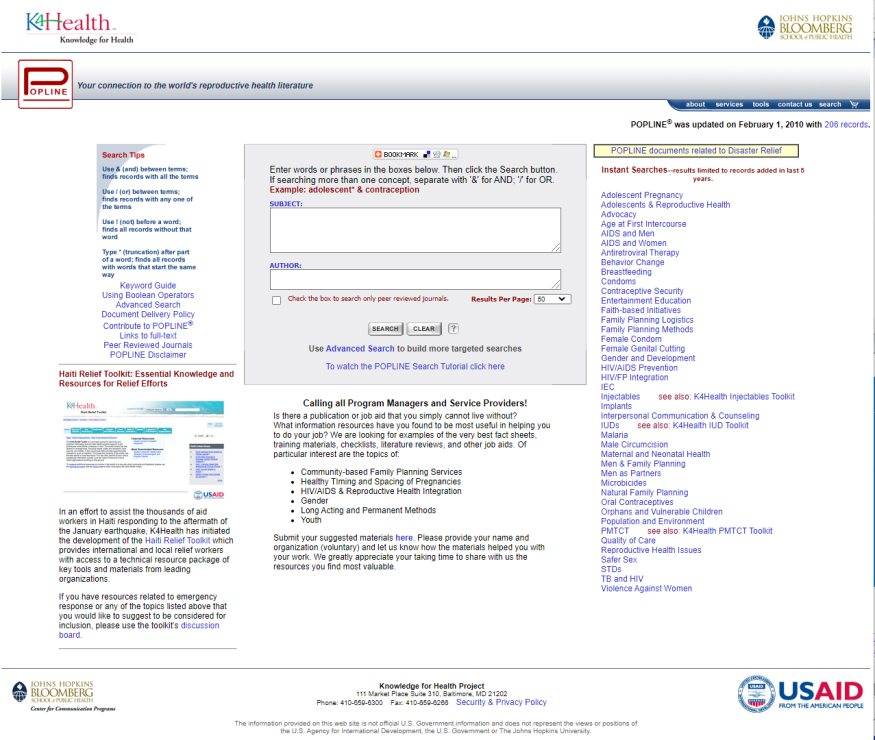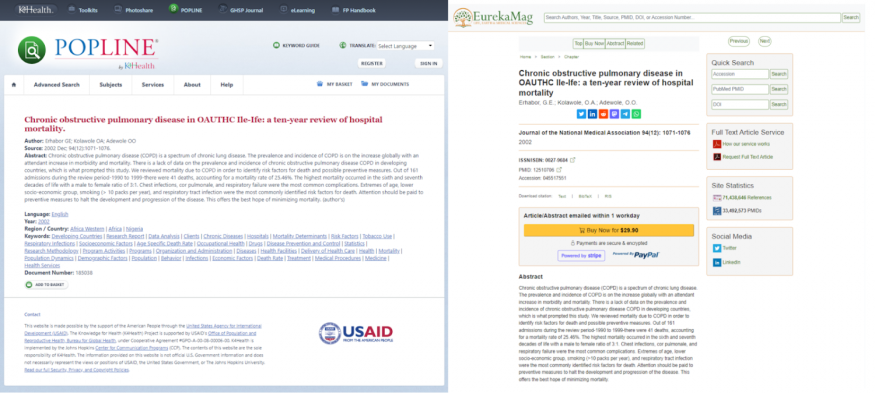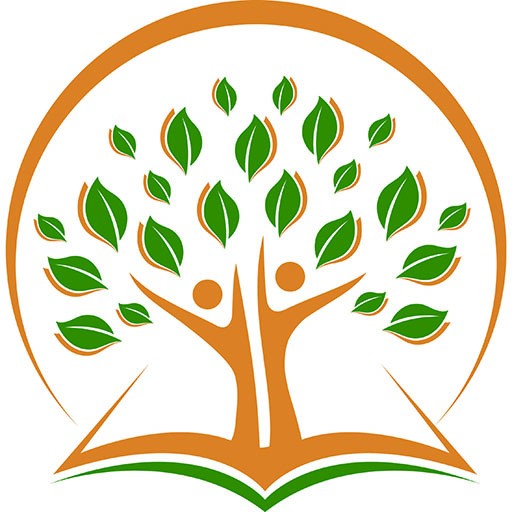
For over 40 years (1973–2019), POPLINE (Population Information Online) was an increasingly popular and content-rich resource in the fields of population, family planning, reproductive health, and related issues.
It became the world's largest bibliographic database containing over 400,000 records of published, "gray," and unpublished literature, including books and book chapters, journal articles, technical reports, conference papers, newspaper articles, theses, laws, and bills in these fields.
George Washington University established the database as "Popinform" between 1973 and 1978, after which it was continued as POPLINE by Johns Hopkins University. From 2001, it was maintained by the Johns Hopkins Center for Communication Programs (CCP) under the umbrella of the Knowledge for Health (K4Health) project and sponsored by the United States Agency for International Development (USAID).

POPLINE saw rapid distribution of its resources during a time when larger databases could only be distributed on media like CD-ROM. Over 950 institutions in low- and middle-income countries quickly adopted and subscribed to these resources not only because they were provided for free but also because the resource was updated twice a year, with approximately 10,000 records added annually. More importantly, POPLINE provided full-text copies of most of the articles in its database free of charge. In the early years when POPLINE was still hosted at jhuccp.org, such distribution was largely possible only via mail. However, since POPLINE was hosted at popline.org in 2010, electronic delivery by email became the standard.

In 2013, POPLINE received 20,000 monthly visits from 15,000 users around the world and delivered nearly 500,000 full-text documents. Then came the end of funding in 2019, and what followed was the unexpected and unexplained complete end of the existence of this resource. On September 1, 2019, 47 years of work of countless supporters around the world completely vanished, with only website captures on the Internet Archive remaining. Maintaining the presence of a website on the Internet requires not many resources, but this project was completely extinguished.
EurekaMag.com was formed as a repository of agriculture science articles in 2004. In 2016, EurekaMag switched to a digital Document Delivery Service (DDS), supplying the full texts of currently 71+ million articles in its database. Nearly 50% of these articles stem from PubMed, the world's most important aggregation of biomedical literature. Since POPLINE was closely integrated with PubMed, EurekaMag recently acquired the POPLINE domain and is currently following in these footsteps. In contrast to POPLINE, EurekaMag has to pay libraries around the world to scan articles; hence, it cannot provide these articles for free.

Based on the data from the Internet Archive, EurekaMag was able to match over 77,000 articles from POPLINE directly with its own database records. The old POPLINE webpages are now redirected to EurekaMag's pages. However, at least 300,000 articles remain unaccounted for since there is no record of POPLINE's database available. Therefore, EurekaMag would like to ask anyone who still keeps any POPLINE CD-ROM or any other database backup to contact the editors. By doing so, this invaluable database could be brought back to life entirely and potentially under its original domain, popline.org.

© 2025 ScienceTimes.com All rights reserved. Do not reproduce without permission. The window to the world of Science Times.












